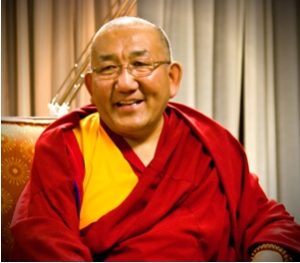Forward by Arjia Rinpoche

When I was a small boy in Tibet, I had been wrenched from my secure monastery during the Religious Reform Movement of the 1950s and made to divest myself of my monastic robes and attend a Chinese school. Later during the Cultural Revolution, I had been made to work in a forced labor camp for more than a decade. During this time, I had personally witnessed the imprisonment and death of my closest friends and relatives. Only my Buddhist teachings and the close companionship of my uncle and other relatives and friends had allowed me the courage and forbearance to still lead a peaceful and happy life.
Irit grew up in a family that had been victims of the Holocaust. Both of her parents and other close relatives had been forcibly taken from their homes, jammed into cattle cars, and suffered in notorious Nazi camps, including the Bergen Belsen Death Camp in Germany. Although they were close-mouthed about their experiences, Irit had managed to have each parent relate to her some of the horrors they had gone through.Touched deeply by their sufferings, Irit had found comfort in the example of her beloved father who explained to her how closely connected everyone is and that our true purpose and happiness in life is in giving to others. He taught her that always “from something bad, good will come.” His love and persistent kindness gave her the resources to also lead a peaceful and happy life.The two of us have much in common.
Good Blood: A Journey of Healing reflects my personal practice of warm heartedness and a lifetime path to true inner peace. In this book, Irit skillfully weaves life experiences with her personal philosophy so that her themes of interconnectedness, higher purpose, compassion, and each person’s potential for enlightenment embroider a fabric that explains how we can heal ourselves and each other.
Furthermore, Irit Schaffer’s artful story telling allows us to understand deeply how suffering can be made to serve a higher purpose. Her father had taken six bullets, but he made it through; instead of showing hatred toward the people who shot him, he practiced forgiveness and gratitude. I was very touched by his action because I recall my uncle teaching us how to practice the six paramitas and the importance of forgiveness and compassion. “Never have a hateful heart.”
Good Blood: A Journey of Healing gives hope to all of us in this challenging world who need to feel the magic touch of healing.
Arjia Rinpoche, Director
Tibetan Mongolian Buddhist Cultural Center
Bloomington, Indiana
January 2016